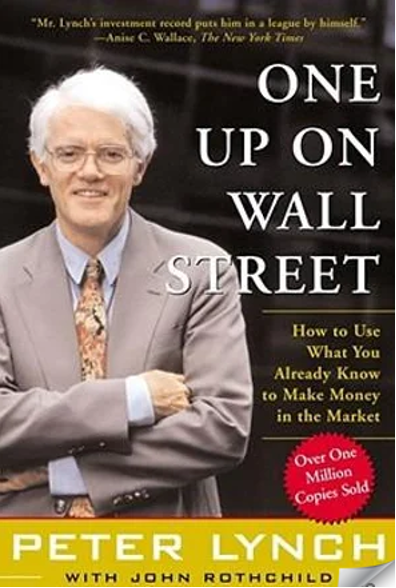
One of the most respected investors of all time is Fidelity’s, Peter Lynch. Lynch earned his reputation as one of the world’s best money managers after he compounded the Magellan Fund at an average rate of 29.2%pa from 1977 to 1990. This was more than double the S&P500 over the same period.
I have read his book, One Up on Wall Street, many times as it offers numerous investing insights that are still applicable today. One of Lynch’s core beliefs is that if you invest in the products you use (either as a user or consumer), this will provide insights that can’t be replicated by a Wall Street analyst and his or her excel spreadsheet.
Below are some of my take-aways from the book:
- To my mind, the price of a stock is the least useful information you can track – but the most widely tracked
- The amateur investor can pick tomorrows big winners by paying attention to new developments at the workplace, the mall, the auto showrooms, the restaurants, or anywhere a priming new enterprise makes its debut
- Never invest in a company before you’ve done the homework on the company’s earnings prospectus, financial condition, competitive position, plans for expansion and so forth
- The bearish argument always sounds more intelligent
- You only need to find one big winner out of eleven. The more right you are about anyone stock, the more wrong you can be on all the others and still triumph as an investor
- Investing in stocks is art, not science
- Historically, stocks are embraced as investments or dismissed as gambles in routine and circular fashion, and usually at the wrong times. Stocks are most likely to be accepted as prudent, at the moment they’re not
- People who succeed in the stock market also accept periodic losses, setbacks and unexpected occurrences … they realise that the stock market is not pure science, and not like chess, where the superior position always wins
- No wonder people make money in real estate and lose it in the stock market. They spend months choosing their houses, and minutes choosing their stocks
- I’m yet to find a reliable source to inform me when the market is going to go up or down – all major advances and declines have been a surprise to me
- Since the stock market is in some way related to the general economy, one way that people try to outguess the market is to predict inflation and recessions, booms and busts, and the direction of interest rates. True there is a wonderful correlation between interest rates and the stock market, but who can foretell interest rates with any bankable regularity?
- You won’t find a lot of 2 or 4% growers in my portfolio because if companies aren’t going anywhere fast, neither will be the price of their stocks
- Basing your strategy on ’sell when you’ve doubled your money ’ or ‘when you are down 10%’ is BS. It’s impossible to find a generic formula that sensibly applies to all the different kinds of stocks
- You get 10 baggers in companies that have already proven themselves. If you have doubt – wait until you can fully understand the story
- Beware the middleman – i.e don’t buy wholesale businesses
- There are 5 ways companies can increase earnings: reduce costs; raises prices; expand into new markets; sell more of its product in the old markets; or revitalise, close, or otherwise dispose of a losing operation. These are the factors to investigate as you develop the story. If you have an edge, this is where it’s going to be most helpful
- Once you are able to tell the story of stock to your family and friends – you will have a reasonable grasp of the stock
- Seek out the headquarters with the hope that if it’s not stuck behind a bowling alley, then it will be located in some seedy neighbourhood where financial analyst wouldn’t want to be seen
- All else being equal, a 20% grower selling at. 20x’s earnings (a p/e of 20) is a much better buy than a 10% grower selling at 10x’s
- Frankly, I’ve never been able to tell which stocks will go up 10x’s of which will go up 5x’s, I try to stick with them as long as the story is still in place and hope to be pleasantly surprised
- Just because a company is doing poorly doesn’t mean it can’t do worse
- Just because a price is going up or down doesn’t mean you are right or wrong
- Buying a company with mediocre prospects just because the stock is cheap is a losing technique
- Selling an outstanding fast grower because its stock seems slightly overpriced is a losing technique
